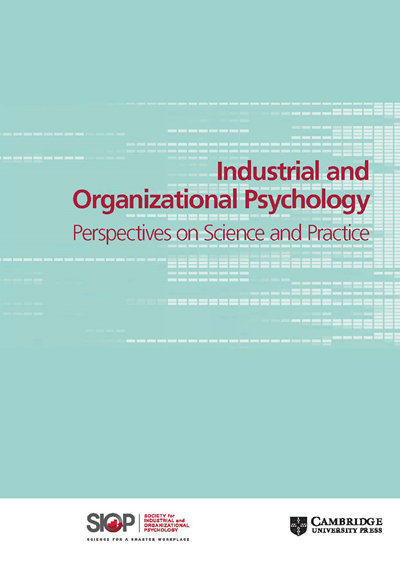How relevant is the APA ethics code to industrial-organizational psychology? Applicability, deficiencies, and recommendations
IF 4.3
3区 心理学
Q1 PSYCHOLOGY, APPLIED
Industrial and Organizational Psychology-Perspectives on Science and Practice
Pub Date : 2023-05-09
DOI:10.1017/iop.2022.112
引用次数: 5
Abstract
Abstract Opinions have been divided regarding the relevance of the APA Ethics Code to non-mental health specialties and even whether the code should attempt to encompass all psychology specializations. However, these opinions have crystallized without the benefit of any appreciable empirical data, until now. This study investigates the applicability of the ethical principles and standards of the code to 398 first-person narratives of ethical incidents reported by industrial-organizational (I-O) psychologists. On average, 2.8 (of the 5) principles enumerated in the code were deemed applicable to each incident, and each principle was applicable to more than half the incidents provided. Of the code’s 89 ethical standards, 75 (84.3%) were applicable to at least one incident. Among the 10 categories of standards, resolving ethical issues and human relations were the most frequently applicable, whereas therapy standards were virtually never applicable. However, for 42.7% of the incidents, trained judges identified a substantive deficiency or ambiguity for I-O psychologists in the code. These deficiencies were subsequently grouped into seven higher order categories (assessments in organizations; research practices; data management; professional interactions; business practices; student ethics; and proactive ethical behavior). Recommendations are offered for improving those putative deficiencies, and implications are discussed for I-O psychologists, the APA’s Ethics Code Task Force (ECTF), and other nonclinical domains of psychology.APA道德规范与工业组织心理学的相关性如何?适用性、不足和建议
摘要关于APA道德规范与非心理健康专业的相关性,甚至该规范是否应尝试涵盖所有心理学专业,意见分歧很大。然而,到目前为止,这些观点都是在没有任何明显经验数据的情况下形成的。本研究调查了该准则的伦理原则和标准对工业组织(I-O)心理学家报告的398起伦理事件的第一人称叙述的适用性。平均而言,准则中列举的5项原则中有2.8项被认为适用于每起事件,每项原则都适用于所提供的一半以上的事件。在该准则的89项道德标准中,75项(84.3%)适用于至少一次事故。在10类标准中,解决伦理问题和人际关系是最常见的适用标准,而治疗标准几乎从不适用。然而,对于42.7%的事件,受过培训的法官在准则中发现了I-O心理学家的实质性缺陷或歧义。这些缺陷随后被分为七个更高级别的类别(组织评估、研究实践、数据管理、专业互动、商业实践、学生道德和积极的道德行为)。提出了改善这些假定缺陷的建议,并讨论了对I-O心理学家、APA道德规范工作组(ECTF)和其他非临床心理学领域的影响。
本文章由计算机程序翻译,如有差异,请以英文原文为准。
求助全文
约1分钟内获得全文
求助全文
来源期刊

Industrial and Organizational Psychology-Perspectives on Science and Practice
PSYCHOLOGY, APPLIED-
CiteScore
7.70
自引率
10.10%
发文量
85
期刊介绍:
Industrial and Organizational Psychology-Perspectives on Science and Practice is a peer-reviewed academic journal published on behalf of the Society for Industrial and Organizational Psychology. The journal focuses on interactive exchanges on topics of importance to the science and practice of the field. It features articles that present new ideas or different takes on existing ideas, stimulating dialogue about important issues in the field. Additionally, the journal is indexed and abstracted in Clarivate Analytics SSCI, Clarivate Analytics Web of Science, European Reference Index for the Humanities and Social Sciences (ERIH PLUS), ProQuest, PsycINFO, and Scopus.
 求助内容:
求助内容: 应助结果提醒方式:
应助结果提醒方式:


